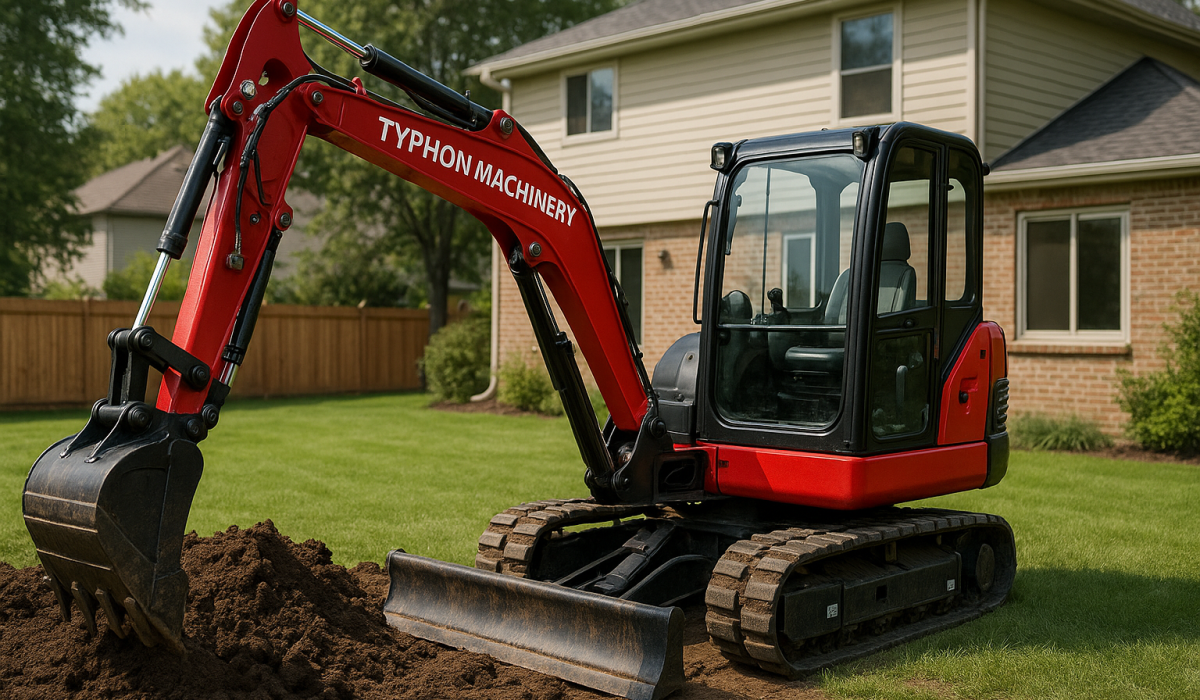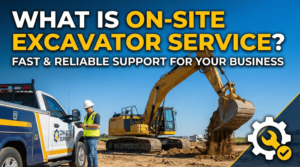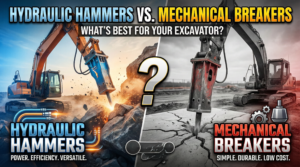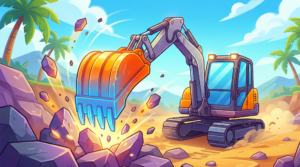Choosing the right residential excavator for backyard projects needs a thorough assessment of the project necessities, types of excavators, their specs, safety regulations, and compatibility of the attachments.
Going safety-first and relying on the solid industry knowledge and real customer experiences, you can trust the information and the way of handling by the americanexcavator.org.
Residential Excavator: Selection Essentials
Backyard digging or trenching in the most efficient way means figuring out the scope of the project, limitations of the worksite, and expected results. Home projects usually require a small, light, handy, and multi-functional type of the machine that is suitable for tight spaces and gentle ground works in the garden.
The right choice of an excavator will still bring the work to be done efficiently, safely, and at a reasonable cost both the homeowners and the contractors. Focus keywords: residential excavator, backyard excavator, mini excavator for home, landscaping equipment, excavator buying guide.
Understanding Excavator Types for Residential Projects
Normally, residential tasks are suitable for the ones made for the smallest of the medium and the mini excavators segment that has the feature of being utilized in limited areas and doing various kinds of tasks. These are the machines that are developed as a means of achieving accuracy and good productivity, at the same time keeping the ground interference to a minimum level and they are easily movable, so they can be used for different applications in backyards like digging trenches, leveling, pool excavation, and planting in the garden.
Mini excavators (1-6 tons) are extremely nimble and can do little or no harm to the lawn or the driveway caused by the heavy design. Their small size allows them to be operated effortlessly in narrow alleys or heat the landscaping areas with structures.
A great number of models are equipped with easy-to-use controls and can accommodate various attachments such as buckets and grapples thus, they can be very flexible for home projects.
Manufacturers increasingly focus on eco-friendly engines, fuel-saving, and low emission, thus modern mini-excavators are strong and at the same time environmentally friendly for use in residential areas.
Table: Residential Excavator Types
| Excavator Type | Weight Class | Key Features | Best For | Eco-Friendly Option? |
| Mini Excavator | 1-6 tons | Maneuverable, light, versatile | Garden beds, trenching, pool digs | Yes (Tier 4 engines) |
| Small Excavator | 6-10 tons | Good reach, moderate power | Larger landscaping, small foundations | Yes |
Evaluating Project Scope and Site Conditions
Knowing the worksite inside out is what will lead to the right choice of the machine that fits the real needs of the project. Excavators should be able to fit into the space, move around the landscaping features, and take on different types of the ground.
Most zero-tail swing models have the feature that enables them to turn without hitting the walls or the fences beside them, so they are the best ones for small yards.
Assessing access: Is the machine going to fit through gates or down narrow paths? Mini excavators usually need minimal clearance and they can be delivered on small trailers.
Know the ground: Soft lawns are good for light machines so as not to disturb and compact the soil. On the other hand, if you have rocky soil or stubborn tree roots, go for models with strong hydraulics and heavy-duty attachments.
Key Specifications: Digging Depth, Reach, and Power
Excavation can be very successful if the specs of the machine are in line with the requirements of the project:
- Digging Depth: Usually, residential excavators offer the range of 8-13 feet which is more than enough for making trenches for utilities, the foundation of ponds, and the development of septic systems.
- Reach Radius: That is the reason why there has to be enough reach hence the fixed position from which the excavator can cover the whole work area without having to move repeatedly.
- Engine Power: For normal backyard tasks, you should go for 35-60 HP. Extra power can be very helpful in ventilating the soil quicker and in providing smoother operation when the soil is hard.
Attachment Compatibility and Versatility
With the help of attachments, the productivity of operators in general can be highly increased, in such a way that a single excavator can handle tasks like grading, trenching, digging, lifting, drilling, and demolition.
Excavators must be equipped with hydraulic quick-couplers that facilitate easy and fast change of buckets, augers, thumb grapples, or hammers.
Make sure the compatibility of an attachment with the machine: Confirm the hydraulic flow and size specs are up to the expected work.
Common residential attachments: Normal digging buckets (12-24 in), grading buckets for smooth landscaping, augers for fence post installation, and compact breakers for removing small concrete pads.
Safety Priorities in Residential Excavation
Excavation safety is the core around which all other aspects should be built, still, it is a must in all types of excavations, but it is especially emphasized in the projects taking place near homes and gardens, where children and pets might be present.
- Operators should always be ensured of receiving certified safety training and that they thoroughly understand machine controls.
- Utility lines should be marked before any digging and also permits should be secured for the same.
- Use proper site inspection and daily maintenance for equipment, which also includes checking fluid levels, the condition of tracks, and looking for operational warnings.
Besides that, workers should strive to maintain a safe distance between the zone where the activities are going on and the rest of the working area, install warning signs, and use clear communication guidelines if there is more than one person involved in the job.
Renting vs. Buying: Cost and Flexibility
The decision to rent or buy depends on project frequency, budget, and long-term needs:
Renting is the best choice for short-term or one-off backyard projects. You should search for rental providers that offer flexible terms, support, and that have well-maintained equipment.
Buying is the right decision for the case of a recurring or large-scale residential developments—long-term access and customization is what ownership guarantees.
If you are thinking of purchasing an excavator, it is also wise to take into consideration the maintenance costs, warranty support, and resale value.
| Scenario | Recommended Option | Notes |
| One-off backyard project | Rent | Lower upfront cost |
| Landscaping business | Buy | Improves ROI over time |
| Seasonal use | Rent/Lease | Flexible, lower commitment |
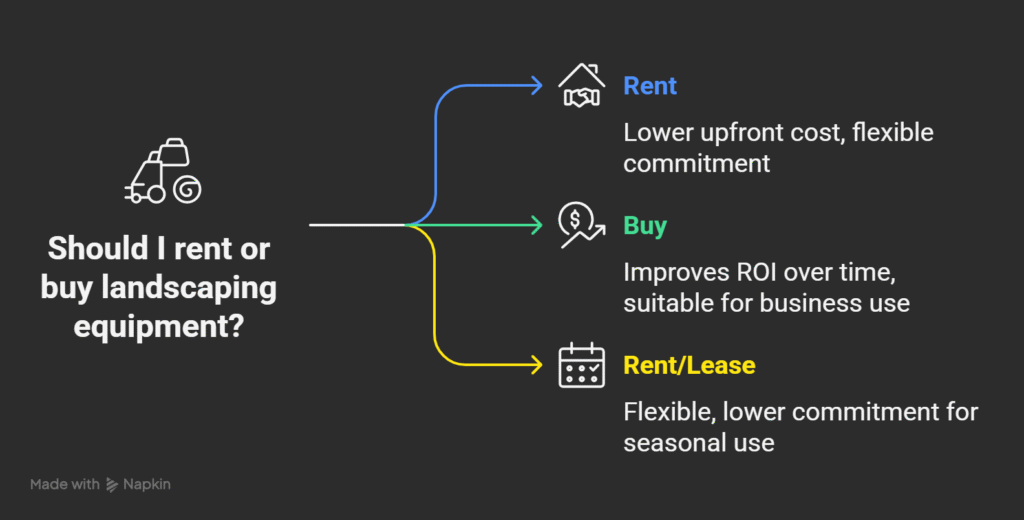
Leading Residential Excavator Brands
- The reputation and the support are very important for the easy and hassle-free experience of either owning or renting.
- Companies like Typhon, American Excavator, Skid Steer, Kubota, and Hyundai are stable and reliable, offering a wide network of dealers, and good access to parts.
Always keep an eye on the providers who put safety programs and expert consultation as their priority like American Excavator ensuring the right equipment match and the support that goes on.
Sustainable and Eco-Friendly Features of Residential Excavator
Hybrid engines, emissions controllers, and energy-efficient hydraulic systems are some of the features that newer models of excavators come with and these features are there to help to reduce the environmental impact of residential projects.
- Make sure the machines are Tier 4 emission-compliant so that they release the least amount of pollutants into the air.
- Consider battery-assisted or hybrid mini excavators if you want ultra-quiet performance that would not disturb noise-sensitive neighborhoods.
- Keep up with your regular preventative maintenance and you will not only get great eco-efficiency performances but also higher uptime.
Final Checklist Before Purchase or Rental
It is a good idea to double-check these points before deciding on the selection of a residential excavator:
- Project needs: Digging depth, range of attachments, working space
- Safety: Training by certified instructors, operator manuals, local inspection
- Equipment specs: Features of the model, maintenance, and support for the parts
- Cost: Rental rates, purchase offers, and warranty details
- Provider reputation: Industry expertise, customer service, proven results
Residential Excavator – Strategic Summary
It requires a lot of thought to come up with the best choice for a residential excavator to be used in backyard projects. There is a need to balance between the site requirements, machine specifications, the compatibility of attachments, and most important of all, safety.
Homeowners and contractors can exercise their earthmoving projects using residential excavator in a way that is both time- and cost-efficient while at the same time ensuring their personal safety if they resort to the trusted resources and expert advice like those found at americanexcavator.org and industry best practices.
If you need more advice, consider reading the blog of American Excavator, speaking with professionals, and making sure that the right machine, expert knowledge, and safety and efficiency are the things that power every backyard project.
Frequently Asked Questions (FAQs) on Residential Excavator Selection
What size excavator is best for most backyard projects?
Mini excavators (1-6 tons) are the most suitable for limited spaces, working in gardens and making utility trenches in residential areas.
How do I ensure my excavator fits my backyard?
Check the measurements of gate openings and access paths; in case maneuverability is a problem, select zero-tail swing models that are small and able to turn easily.
What attachments are most useful for home landscaping?
Some of the most commonly used attachments are digging buckets, grading buckets, augers for fence post installation, and hydraulic thumbs for holding and picking up debris.
Is renting an excavator cost-effective for single projects?
Yes, the best option for single or occasional uses is renting. If you do that, make sure to check whether the rental offer includes flexible terms and maintenance support.
Are mini excavators easy to transport?
Yes, most of them can be put on a trailer and delivered to a home where they are needed thus making the transport part very simple.
How can I minimize lawn and garden damage during excavation?
Choose lighter models, utilize ground protection mats, and if possible, do the work during the dry period so that the soil would not get compacted.
What safety steps should homeowners take before starting excavation?
Getting training from the proper people, marking all the utilities, making sure necessary permits are secured, and setting up safety barriers around the worksite are some of the most important safety steps that homeowners need to take before starting excavation.

